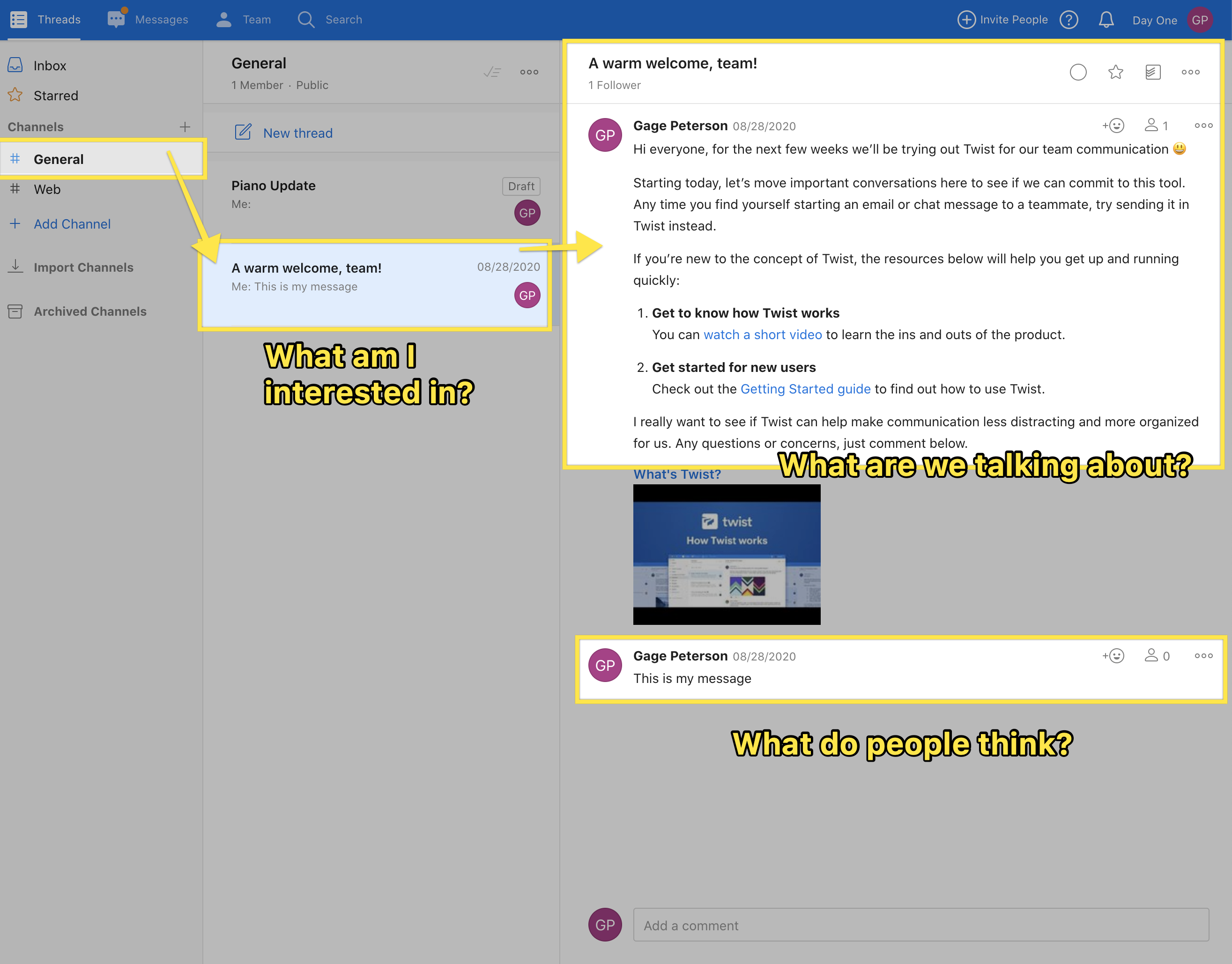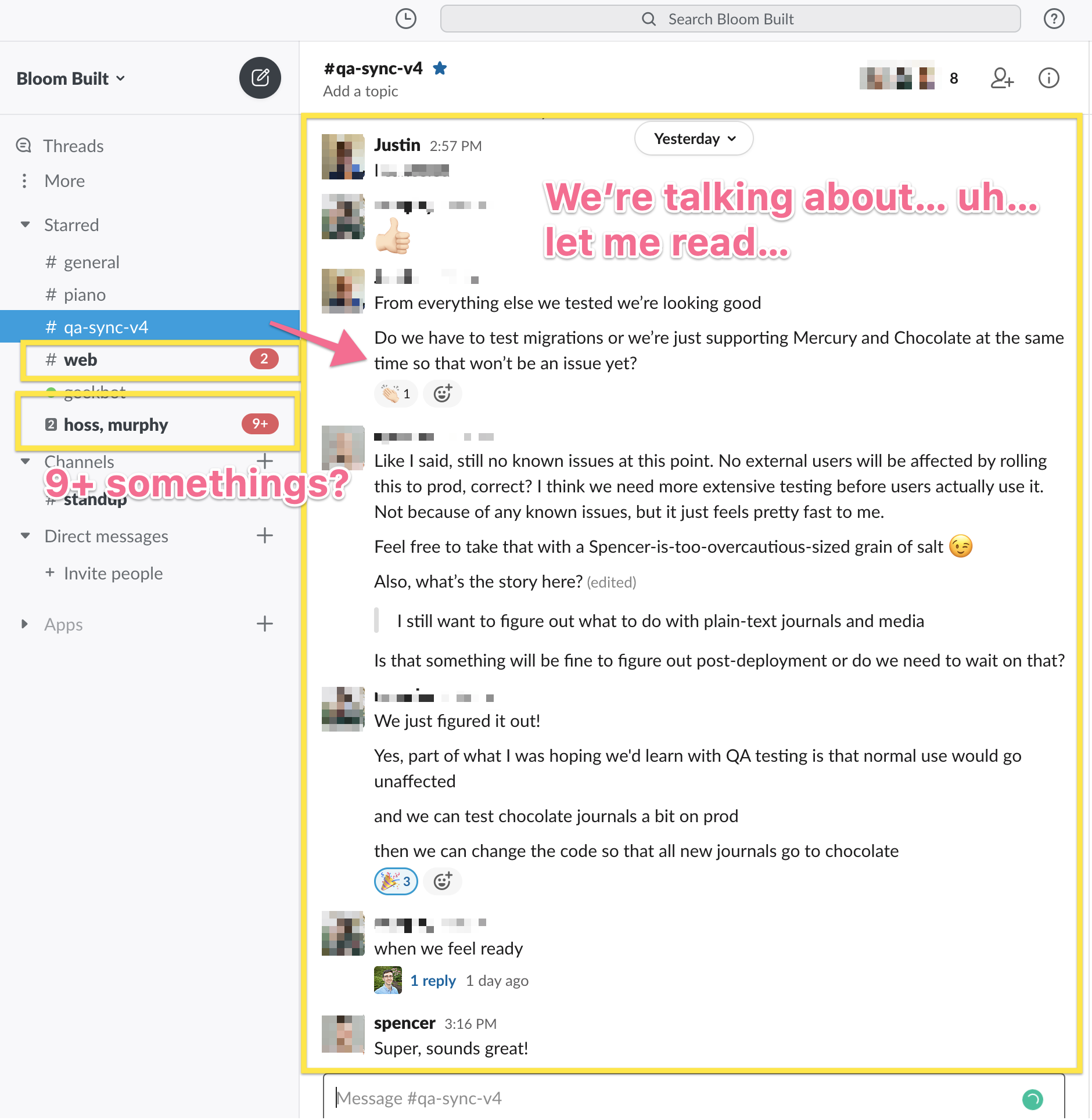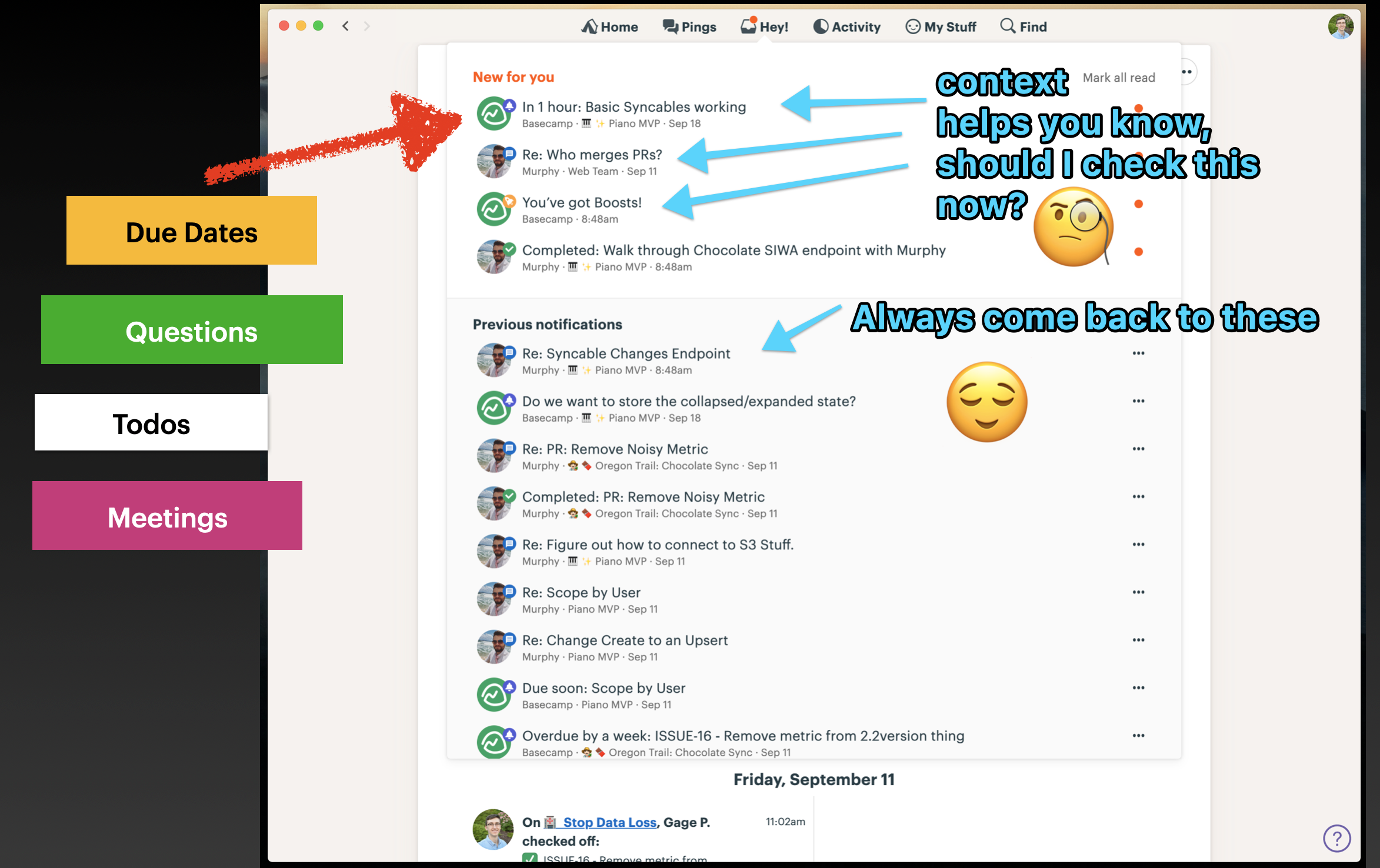Slack creates Burnout
“To see what is in front of one’s nose needs a constant struggle.” -George Orwell
I have this on my chest for a long time. I really haven't had the words to describe exactly what I need to say, but now I think I do.
I really want to make remote working better. I really don't feel like it's working right now. And I do think that it can be better. I think it can be so good that people would love it.
Work Hard, Play Had
So with remote work creates this weird situation where before when you went to the office you focus on the office. You'd talk to your co workers. You've got cool stuff done. And then you went home. And then you were home.
There was a clear physical separation which created a clear mental separation Not only that because most of the communication would happen in person which isn't possible once you go home. This created a clear and healthy boundary.
Work, all the time
Work Life Balance? Not anymore. You office is the distance to your nearest phone or computer. This is awesome for commuting but it terrible for work/life balance.
Because we don't get the strict separation from work and home. We get burnt out with remote workers. If you hire good people, which we have, the biggest problem you have to be looking for is overwork not under work.
Our people are not going to knowingly avoid work. Not at all. In fact what they'll probably do more often than just avoid it, they'll work overtime. You can see this in slack all the time:
"I am going to be gone for 30 minutes but don't worry I'm going to add on 30 minutes at the end of the day to make up for it".
This just not healthy. It's just not healthy to micromanage our time so much, we have never been 100% productive at work and just because we have less distractions now doesn't mean that we need to work constantly.
At the office we'd joke, we relaxed, go to snack counter, get lost in an interesting discussion. We took lots of breaks. Remote work for some reason turns into some kind of work marathon.
Being present when you're at home is important but the line is super blurry now.
Slack
As much as I hate to single out a single tool, I can't stay silent about Slack. Much like we don't want to think that the CEO company really has the that much sway on success of the company, we likewise don't want to admit that the tools we use have much power over us, but they do.
The thing is, we live inside of Slack, it is, to the biggest degree, our virtual office. Slack is just a tool right, what can it do? Any app has a very powerful choice that influences our behavior. That is, what it decides to show and what it hides.
Sure, Google is a tool too, but when have you deviated from the 1st, or especially second page? Years ago? Slack is the same way, it chooses to show you some information and make other information hidden in subtle ways.
What it makes easy, and what makes it hard. It's design affects us every day in a very prominent way that's unavoidable and invisible.
Designed for the office
And so Slack was not made for remote workers (or by them for that matter). It was designed to compete in an open office environment where there's lots of distractions. It thrives where people generally aren't connected to their computer and phone very often because they are talking to the people in front of them.
Slack's primary purpose in those days was a way to message someone who wasn't at their desk. It was also an easy way to share a file or copy a programming command to someone.
Then COVID hit, and all of a sudden everyone was using Slack at higher levels than ever.
FOMO with no escape
Slack uses many techniques to "drive engagement" (addiction) but one of the most subtle is the "mystery in your inbox".
Basically the way this works is by showing you a red dot in your side view (#general 🔴).
By doing this it's providing a "mystery box". What are people saying in #general? It's unclear. 9 times out of 10 it's not going to be useful but sometimes it IS important! So we check it.
This is a technique that's not by accident, it's well known habit loop used by gambling machines to keep people pulling the lever. "This time I might actually win something!" It feels like work, but in reality it's just draining our finite ability to concentrate.
This behavior is constantly repeated and habits form and they become strong.
9am-5pm, more like 8am-10pm
Yep that's Slack's default notification settings. Yes, notifications do tend to die down around 5pm, but all it takes is one person working a little late or posting something to #random and they've pulled in people that are supposed to be taking a break.
If you followed this default you'd be working a 70 hours a week instead of a healthy 40.
It's either keep up or be left behind
Slack has no "tl;dr button". It's either read everything or miss out. An important announcement will inevitably be nestled between some gifs and random replies with nothing to distinguish it from the other messages. So you read everything.
Vacation? Why?
Slack has no mode for vacations, you can set your status sure, but there's no way you could disconnect for a couple of days and actually know what happened.
If you did disconnect for a few days you would have to sit back in your armchair to read the collective novel that everyone's created in your absence (spoiler: it's not going to be a best seller).
Again, there's no TL;DR so the only way to be an informed employee is to never disconnect.
You get your seat at the table...so long as you're always sitting there
"Seat at the table" refers to being able to let your voice be heard in decisions and similar situations. When someone is focusing (read: doing real work) they might miss out on someone asking for people's opinion on a topic.
After a few people respond and the some silence elapses a decision has been made! Why because... it seems like everyone had a chance, right? Wrong. This means keeping Slack open at all times is the only way to be included.
Signs of good remote communication tools
Slack was never designed to be used for remote work. Slack (the company) has put thought into adapting it for Remote work, they will never give up on trying to get us addicted to using it.
It just makes them too much money and it's how they measure their success.
As such the only way is to stop using Slack. It's just like a romantic relationship. Yes you can try to be a better person but if you're in a bad relationship you just have to get out.
Topic based Threads
A thread is basically a conversation focused around a single topic that reads in chronological order (oldest to newest) that exists for a short time then eventually is archived for learning in the future under a clear tile.
I think the way to show it the most is to show Twist's interface due to how similar it is to Slack.
 Compare this with Slack's UI:
Compare this with Slack's UI:

This may not seem that different, but here are some key differences:
- Topics have a title and take up a fixed height.
- Topic list changes very slowly, Slack's chats change constantly.
- Twist forces you to either start a new topic OR to comment on an existing one, cluttering up the feed isn't a thing.
- Direct messages are secondary due to their lack of transparency.
Calming Notification system
Slack's notification system causes stress because by default it clears as soon as you open up the, "mystery box". This means if you navigate away you loose out on information. This pressures you into reading every channel just because you were skimming for importance.
Basecamp's notification system allows you to pop it open safely without fear that you'll forget where you saw a piece of information. Also gives you lots of context to help you decide what's worth your time right now and what can wait till later.

From Slack burnout -- transcription
Backlinks: